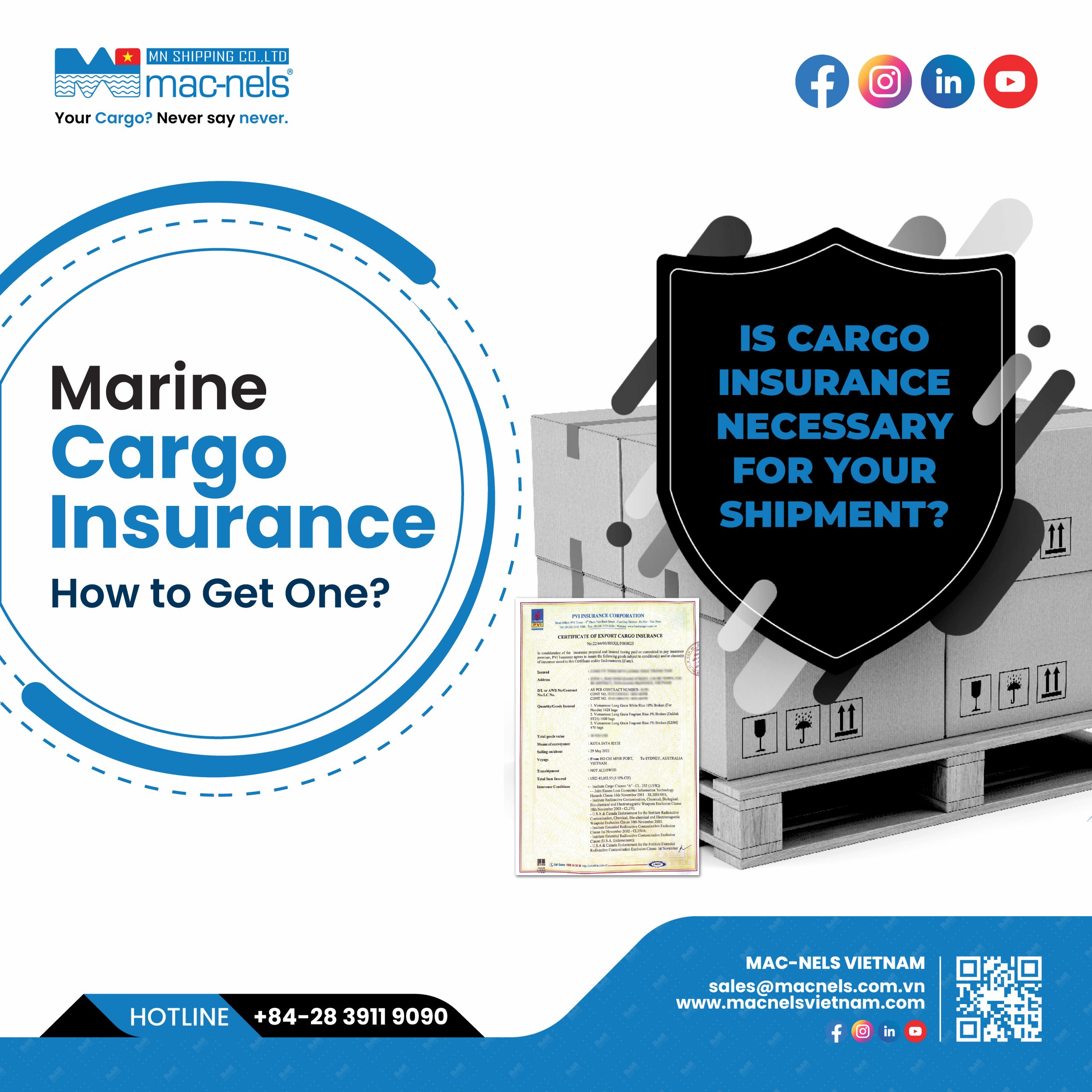What is Marine Cargo Insurance and How to Get One?
25/03/2022Marine insurance is a very important aspect that ship owners have to consider. In the absence of marine insurance, ship owners could incur not just loss to their ships but could also face financial losses in case if the ship is commercially used as cargo-carriers.

This is why, in order to specifically ensure the protection of the cargo that is carried, there is the concept of cargo insurance or marine cargo insurance. The difference between marine insurance and the marine cargo insurance can be explained below:
Marine Insurance: Marine insurance policies are based on the Marine Insurance Act, 1906. While marine insurance is deep in its coverage of possible losses, it does not cover losses that happen while the ship is sailing in the waters. This becomes a problem in case of those water areas where the risk of loss is magnified because of piracy and other reasons. In order to overcome this problem, the concept of marine cargo insurance emerged.
Marine Cargo Insurance: Cargo insurance or marine cargo insurance covers and protects the cargo when the ship is actually sailing in the oceanic waters. This type of insurance is mainly beneficial for oil tankers and other heavy cargo-carrying ships. In technical terms, cargo insurance covers losses that occur while the ship is in transit.
There are many companies across the world which provide for marine insurance and cargo marine insurance policies. Depending on the client’s convenience and necessity the right marine insurance policy can be recommended by the insurance company and then chosen by the client.
Some of the companies that offer marine insurance policies (including cargo insurance) include the Saucon Mutual Insurance Company, established in the year 1832 and the Insurance Network of America, established in the year 1949.
However, there are a lot of minor points that a client needs to consider while going for a marine insurance policy. If these points are ignored, then the client could lose money as compensation even after paying proper premium amounts.
If the goods are not packed properly or if the goods that are shipped are second hand then the cargo insurance policy will not be applicable. Similarly, if the loss to the cargo is due to the negligence of the ship workers or if the workers on the ship are dishonest, then the marine cargo policy will not be applicable. Even weather conditions influence whether a marine insurance policy will be covered or not.
A marine insurance policy also depends to a large extent on the size of the ship. Another important thing to be considered while going for cargo insurance is whether to opt for an insurance policy that will be covered as per the voyages taken by the ship or as per a pre-defined time schedule decided by the ship owner.
Thus it can be concluded that taking out marine cargo insurance does not only depend on the client but also on other factors as well. By taking care of all the necessary factors, a ship owner can ensure that all losses can be avoided successfully.

Here’s how you can get marine cargo insurance:
Identify your needs: Determine the type of cargo you need to insure and the risks associated with its transportation. Consider factors such as the mode of transportation, the value of the goods, the distance of transit, and the potential risks involved.
Find an insurance provider: Research insurance companies that offer marine cargo insurance. Look for reputable providers with experience in handling cargo insurance claims and a strong financial standing.
Obtain quotes: Contact multiple insurance providers to obtain quotes for marine cargo insurance. Provide them with detailed information about your cargo, including its value, the mode of transportation, the route, and any specific coverage requirements.
Compare coverage options: Review the quotes and compare the coverage options offered by different insurers. Consider factors such as the scope of coverage, deductibles, limits, exclusions, and premiums.
Customize your policy: Work with the insurance provider to customize a policy that meets your specific needs. You may need to add additional coverage or endorsements depending on the nature of your cargo and the risks involved.
Review the terms and conditions: Carefully review the terms and conditions of the insurance policy before finalizing the purchase. Pay attention to exclusions, limitations, claims procedures, and any other important provisions.
Purchase the insurance: Once you’ve selected a suitable insurance policy, complete the necessary paperwork and pay the premium to purchase the marine cargo insurance coverage.
Maintain documentation: Keep detailed records of your cargo shipments, including invoices, packing lists, bills of lading, and insurance documents. This documentation will be important in the event of a claim.
File claims promptly: If your cargo is lost or damaged during transit, notify your insurance provider immediately and file a claim as soon as possible. Provide all the necessary documentation and cooperate with the insurer throughout the claims process.
By following these steps, you can obtain marine cargo insurance to protect your goods during transit and mitigate the financial risks associated with transportation.
Source: Internet


